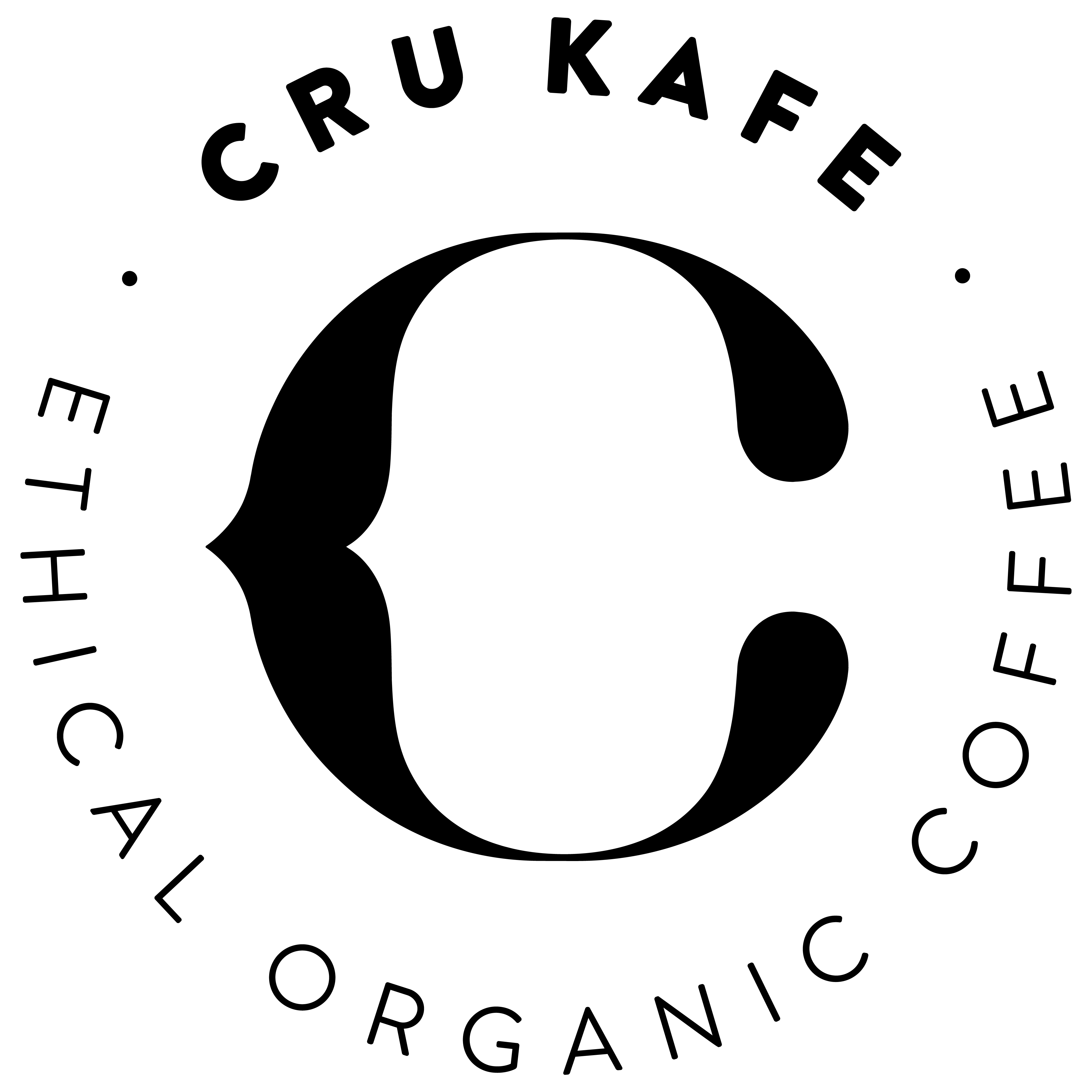‘So how much actual caffeine is there in a cup of your coffee?’
It’s a question we’re asked daily, and one that we’ve always struggled to answer. Calculating the caffeine content of a coffee is never an exact science, as everything from growing conditions of the bean itself right down to the size of the grind and the length of the roast will drastically change how much caffeine ends up in your morning cup. However, that answer doesn’t really help anyone - especially you - so we’ve decided to take a closer look at your cup of CRU Kafe and answer it as best we can.
Caffeine per cup - our rule of thumb
Arabica - 58 mg
Robusta - 85 mg
80ml pour
Robusta - 98 mg
Roasting - does this affect caffeine?
Light or Dark Roast: if you had to guess which had more caffeine, you’d probably say the Dark, right? Well, whilst caffeine is relatively stable during the roasting process, it does actually start to ‘burn’ off the longer it’s in the roaster - so lightly roasted coffee, in general, contains more caffeine than it’s dark-roasted brother. It’s slightly counter-intuitive, as the characteristics associated with lightly-roasted coffee (high acidity, fruity, floral notes) don’t really lend themselves to our traditional view of ‘strong’ coffee.
Does your decaf coffee contain any caffeine?
Currently our only decaf coffee is our Organic Peruvian, and that’s decaffeinated using the Sparkling Water method - which uses pressurised liquid carbon dioxide (hence the ‘sparkling water’) to extract the caffeine from the beans. Whilst this removes nearly all of it, there will always be trace amounts left on the bean - but you’re looking at maybe 1-2 mg per cup, at the most.
What exactly is caffeine?
Caffeine is the most widely consumed psychoactive drug on the planet - with 9 in 10 of us regularly consuming it on a daily basis. It’s packed full of benefits to our nervous system, stimulating mental alertness, memory, concentration and even helping to increase the strength and power of our muscle, as well as helping with energy expenditure and exercise - and the most well known source of caffeine is, of course, the coffee bean.
So, how does CRU Kafe coffee stack up?

How much caffeine is too much?
As of 2012, the FDA (the American Food & Drugs Administration) stated that anything up to 400mg of caffeine a day for healthy adults* is agreeable - and wasn’t associated with any adverse health effects. However, for pregnant women, the NHS recommends that you don’t exceed 200mg a day - although, interestingly, the medical evidence behind this remains equivocal.
In day to day terms, that's roughly the amount of caffeine in four cups of brewed coffee, 10 cans of coke or two "energy shot" drinks. Keep in mind that the actual caffeine content in beverages varies widely, especially among energy drinks.


